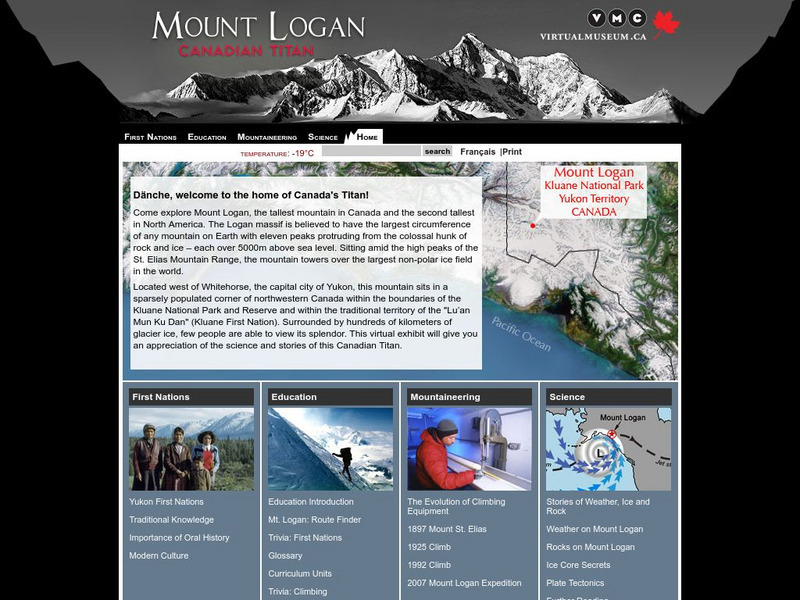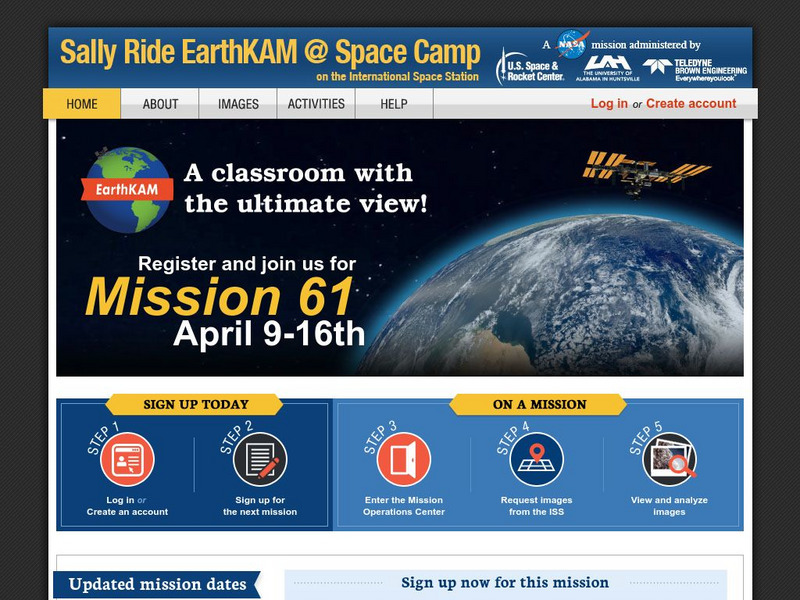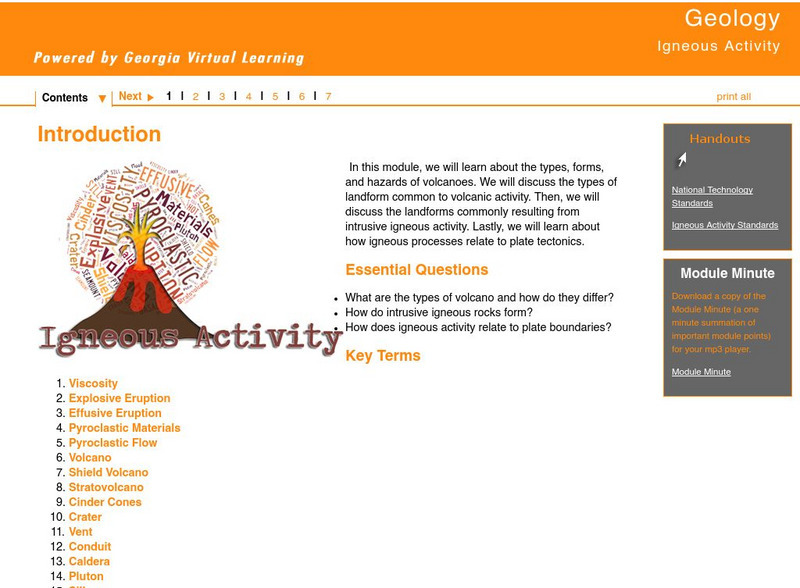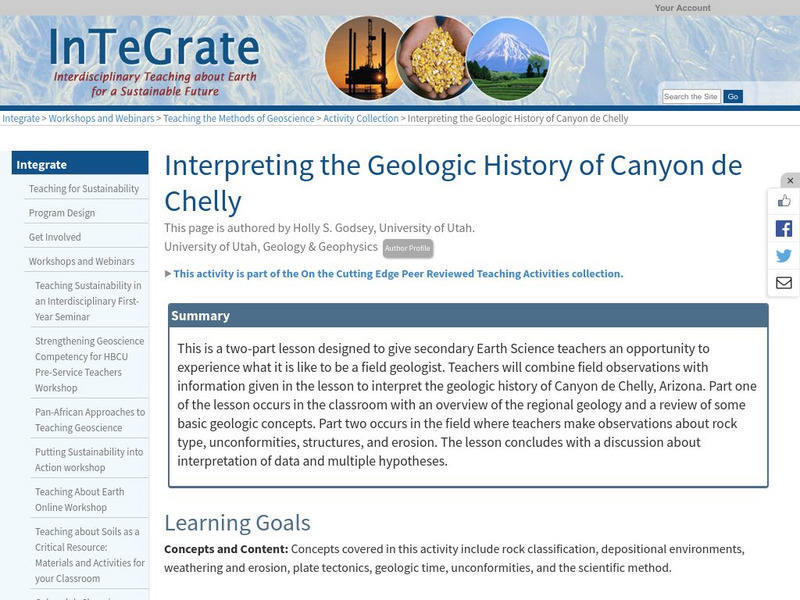Burke Museum
Burke Museum: Earthquake Science
This section of the Burke Museum's online exhibit on earthquakes and natural disasters focuses on the science of earthquakes. Topics that are covered include plate motion, heat, interior of the earth, and more.
University of Kentucky
University of Kentucky: Earth Science Classroom Activities
A collection of links to activities and lessons that could be used for Earth science concepts including the foil record, creating a timeline of Earth's history, plate tectonics, dinosaurs, and the progression of life on Earth.
Scholastic
Scholastic News: Found: A Missing Tectonic Plate
Scientists recently discovered a missing tectonic plate known as the Farallon plate beneath California. This article explains what the Farallon plate is, as well as the significance of its discovery.
Read Works
Read Works: Finding Fault
[Free Registration/Login Required] This informational text passage describe different active tectonic plates around the globe. This passage is a stand-alone curricular piece that reinforces essential reading skills and strategies and...
CK-12 Foundation
Ck 12: Earth Science: Magnetic Evidence for Seafloor Spreading
How magnetic reversals on the seafloor provide evidence for seafloor spreading. [Free Registration/Login may be required to access all resource tools.]
CK-12 Foundation
Ck 12: Earth Science: Magnetic Evidence for Seafloor Spreading
[Free Registration/Login may be required to access all resource tools.] How magnetic reversals on the seafloor provide evidence for seafloor spreading.
CK-12 Foundation
Ck 12: Earth Science: Volcano Characteristics
[Free Registration/Login may be required to access all resource tools.] What volcanoes are and where they are located.
CK-12 Foundation
Ck 12: Earth Science: Groundwater Pollution
[Free Registration/Login may be required to access all resource tools.] How groundwater can be polluted.
Vision Learning
Visionlearning: Earth Science: The Rock Cycle: Uniformitarianism and Recycling
Instructional module focusing on the rock cycle. Discussion includes the concept of uniformitarianism and how earth materials change from one form to another. The site also includes an interactive practice quiz and links relating to the...
Science Struck
Science Struck: Earthquakes and Volcanic Eruptions
Explains what earthquakes and volcanic eruptions are and how they are related.
NOAA
Noaa: National Ocean Service Education: Global Positioning Tutorial
Illustrated tutorial explains the history and science of geodesy. Animations help students visualize how scientists measure and monitor the size and shape of the Earth and the location of points on its surface.
Virtual Museum of Canada
Virtual Museum of Canada: Mt. Logan: Canadian Titan
Mt. Logan in Canada's Yukon Territory is the tallest mountain in Canada and the second tallest in North America. Learn about the people who live around it, the history of mountaineering in the area, and the science - both geological and...
US Geological Survey
U.s. Geological Survey: Earthquakes for Kids
Comprehensive information on earthquakes. Includes photos from famous earthquakes, ask-an-expert feature, earthquake science, history of major earthquakes, a pictorial ABC, adults' guides for dealing with children's emotions, animations...
University of California
University of California Museum of Paleontology: Distribution in Time and Space
The Understanding Evolution site provides evidence for evolution in biogeography utilizing relative dating, geography, and plate tectonics.
The Franklin Institute
Franklin Institute Online: Earthforce in the Crust
Learn more about earthquakes as well as plate tectonics. Site offers links to current quakings as well as earthquake science, teacher lessons, interactives, and earthquake history.
Extreme Science
Extreme Science: How Old Is the Earth?
We say Earth is 4.6 billion years old, but how do we know? How do we measure its age? This article focuses on these questions and how long life has been on Earth.
Exploratorium
Exploratorium: Earthquake Faultline Earthquake Activities
This outstanding website provides an excellent variety of hands-on earthquake activities to help you understand what causes earthquakes.
Other
Nasa: Iss Earth Kam
Students get a whole new perspective of the world through images obtained from the International Space Station. Students can even request images to be taken through ISS EarthKAM. Activities and educator guides are provided.
Georgia Department of Education
Ga Virtual Learning: Igneous Activity
In this interactive tutorial you will learn about the types, forms, and hazards of volcanoes. The types of landform common to volcanic activity is discussed. Then, the landforms commonly resulting from intrusive igneous activity are...
Curated OER
Extreme Science: A Lesson in Plate Tectonics
With its clickable map, this site provides text and graphics on spreading boundary, converging boundary, subduction zone, transverse boundaries and faults.
Bill Nye
Bill Nye: Move Mountains
This tutorial from Bill Nye uses newspaper to show how tectonic plates can crush together to create mountains.
Science Education Resource Center at Carleton College
Serc: Interpreting the Geologic History of Canyon De Chelly
Earth Science teachers will combine field observations with the information given in the classroom to interpret the geologic history of Canyon de Chelly, Arizona.
Annenberg Foundation
Annenberg Learner: Earth and Space Science: The Geologic Timeline
Take this online quiz and test your knowledge of geological history, and the formation of our atmosphere, water, crust, oxygen, tectonic plates, Moon, and the rest of the Earth.
Science Struck
Science Struck: Facts About the Cenozoic Era and Its Life Forms
Describes the different periods, epochs, and stages of the Cenozoic Era and the events that took place in them. Looks at geology and tectonic plate movements, climate, flora and fauna, and the emergence of mammals as the dominant life...


















